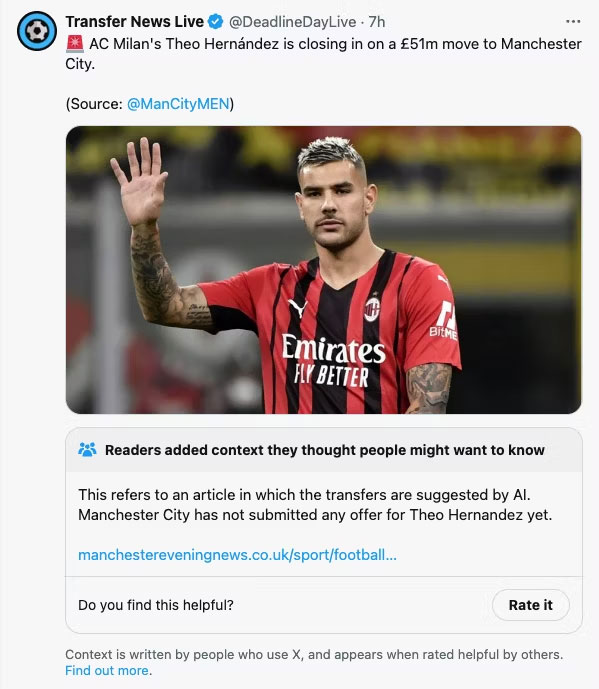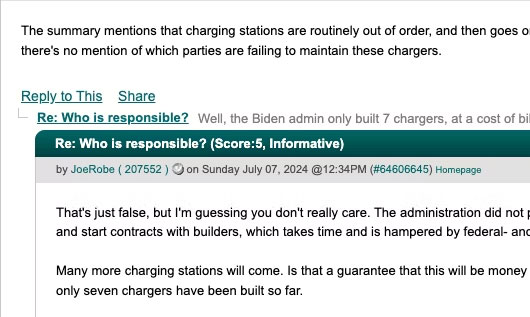Why should all social media platforms implement Community Notes?
How do community notes work?
Community Notes (CN) is essentially a fact-checking feature that Twitter launched in 2021, under the name Birdwatch. It went largely unnoticed for a few years but since Musk took over and rebranded it as X, Community Notes has received a lot more attention.
Community Notes is a community-sourced initiative involving unpaid volunteers. Ideally, CNs follow this process:
- Someone posts false information about X.
- The post became widely popular.
- CN contributors fact-check posts, add context, or make corrections.
- Other contributors rate the CN, causing it to be approved or rejected.

Once Community Notes are approved, X makes them visible to all users under the text 'Readers added context they think people might want to know'. Many controversial and popular posts on X now include a Community Note at the end, adding context or disputing claims.
Why are community notes useful?
Contributors to Community Notes are pre-approved, so you must meet X's criteria to join the program. In theory, this should prevent bad actors from manipulating the system, ensuring fairer censorship.
An algorithm ranks Community Notes according to the broad consensus of many other contributors. This will prevent narrow views from prevailing by ensuring like-minded accounts cannot game the system by acting together.
Community notes do not cause X to delete or edit posts. The article remains the same except for additional notes, so accusations of censorship do not apply. Furthermore, Notes helps empower regular service users, which can help increase engagement.

Perhaps the coolest aspect of Community Notes is that you can also add them to ads. Companies that post dropshipping ads are often subject to criticism, as well as many exaggerated or misleading claims. The danger is that, by supporting this open accountability system, Twitter will hurt the advertisers involved, but in return users will be better off.
Do other platforms offer something similar?
Most social media platforms have some form of moderation in place in addition to terms and conditions to prevent users from abusing their systems. However, very few platforms provide public information checking services like X.
Slashdot, a social news service started in 1997, was a pioneer in community moderation. The site uses a system that empowers comment moderation. If your account is in good standing, at random times it may give you small moderation points. Moderated comments can be hidden and rated using qualitative options such as 'Informative' and 'Interesting'. Slashdot also has a meta moderation feature that tries to ensure fair moderation.

Reddit uses community moderators, who can approve or hide submissions and comments. Reddit users can vote up or down comments; a low enough number of votes will cause the comment to be hidden by default, with a 'comment score below threshold' message but it will still be viewable.

As a publisher, you can moderate YouTube comments and reject them if you don't like them. This can help prevent abuse, but it also means that dissenting or critical comments may be deleted, which reduces accountability. However, YouTube recently announced that they will soon launch a feature similar to Community Notes.
Facebook is inherently less public than X, so there is less need for fact checking. However, Facebook posts can still influence and spread misinformation. Like most social media platforms, Facebook allows reporting an inappropriate or abusive post.
What alternatives are there?
There are many websites that fact-check famous, controversial claims. Traditionally, they deal with more older media content, but now many also cover the most prominent statements made on social networks, including X.
The key difference between Community Notes and other efforts to fact-check content is independence. It's strange for X to host public criticism of the content it's posting, especially since the Community Notes algorithms aren't completely transparent. Should we trust X to provide accurate fact-checking capabilities?
However, consider alternatives. Fact-checking organized elsewhere may be more independent, but unless someone sees it, it will have little value. By empowering users to add context to each other's comments, from the start, X is setting an example that Facebook, Bluesky, and other wise platforms will follow.